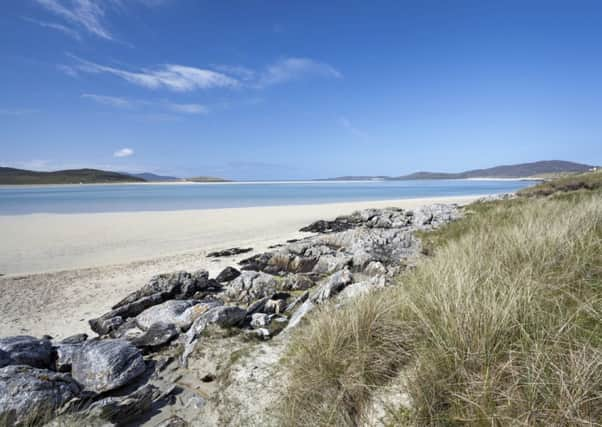Roger Cox: Arguing for a new Scots national park


There was something profoundly depressing, the other week, about the way in which a spokesman for the Scottish Government chose to respond to renewed calls for more national parks in Scotland. On the eve of a two-day conference in Perth celebrating the life and work of John Muir, the Scots-born father of America’s vast, 19.5 million acre national park network, two organisations – the Scottish Campaign for National Parks (SCNP) and the Association for the Protection of Rural Scotland (APRS) – decided to dust down their visionary report from last autumn, entitled Unfinished Business: A National Parks Strategy for Scotland, and ask the Scottish Government once again to consider its proposals to create seven new parks, to go along with the two we already have in the Cairngorms and Loch Lomond and the Trossachs. The suggested sites are Galloway, the Cheviots, Glen Affric, Ben Nevis/Glen Coe/Black Mount, Wester Ross, the Isle of Harris, and a Coastal and Marine National Park, centred on Coll, Tiree and the west coast of Mull.
The official response, as reported by the BBC, began: “The report does not make a compelling business case to establish new national parks, nor does it provide robust evidence of broad-based community and local authority support for such proposals.”
Advertisement
Hide AdAdvertisement
Hide AdRather embarrassingly, the second half of that sentence suggests the spokesperson in question had failed to read the report in much depth: a quick look at page 30, point 5.15 tells us that the case for turning the Isle of Harris into a national park “has the clear support of the local community, conclusively proven by a referendum.” Surely of all the political parties in Scotland, the SNP should be the one most respectful of referendums as an unimpeachable means of demonstrating the will of the people?
But that’s not the depressing bit. The depressing bit is the opening gambit about there not being “a compelling business case to establish new national parks.” Let’s stop and consider that for a second: the Scottish Government believes there is no compelling business case to establish new national parks, and is prepared to offer this as its primary reason for not establishing them. That strange whirring sound you can hear? That’d be John Muir, spinning in his grave.
One of the great man’s main reasons for campaigning for the establishment of national parks in America was his belief that these areas of outstanding natural beauty were sacred spaces that needed to be put out of reach of the grubby demands of commerce. The market couldn’t be trusted to look after them properly, so it was the government’s job to step in and protect them for the common good.
Compare the Scottish Government spokesperson’s cash-blinkered justifications for not creating more parks in Scotland with this soaring prose from Muir, written for the Sierra Club Bulletin of 1896:
“If only one of our grand trees on the Sierra were preserved as an example of all that is most noble and glorious in mountain trees, it would not be long before you would find a lumberman and a lawyer at the foot of it, eagerly proving, by every law terrestrial and celestial, that the tree must come down... The battle we have fought, and are still fighting, is part of the eternal conflict between right and wrong, and we cannot expect to ever see the end of it.”
With the No campaign focusing their fire almost exclusively on the perceived financial costs of independence, the SNP clearly have to be seen to be realistic. But if they want to turn their dream of independence into reality then they need to give the electorate reasons to dream as well; and what better, more symbolic way of offering people hope for the future of a newly re-born nation than by making a commitment to preserve some of its most iconic landscapes for generations to come?
The Cairngorms National Park cost the Scottish Government a grand total of £6.3 million in the financial year 2012/13. Perhaps the creation of seven new parks is a big ask, but at that price surely they could manage one – if only to demonstrate that, unlike the No camp, they believe there are some things in this world more valuable than money.